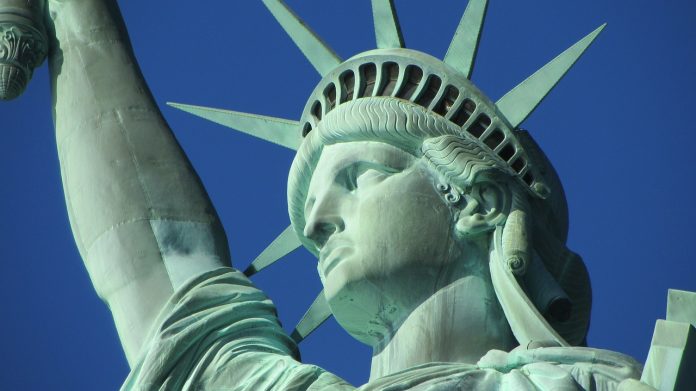By Brad Lips, the chief executive officer of Atlas Network, which serves a global community of more than 550 civil society organizations
War in Ukraine. Authoritarian regimes. Tax-and-spend economic policies. Government bureaucracy run amok. Inflation and a spiraling cost-of-living crisis. The problems in Europe seem endless, and solutions seem difficult to come by. But hope can be found in the classical liberal principles that emerged from Enlightenment-era thinking.
These principles propelled the advance of European civilization, and they can do so again if more Europeans heed the wisdom of the likes of Adam Smith. He was born 300 years ago this year, but his advocacy for a “simple system of natural liberty” is needed now more than ever.
Look at the cost-of-living crisis. Rents in London are up this year by 20 percent or more. Thousands of protesters hit the streets of Brussels last year, lamenting the rise in food and gas prices. More recently, Italians called for a “pasta protest” in light of the still-sky-high cost of spaghetti and other staples.
Demagogues may blame greedy capitalists for spiking prices, but most citizens understand that greed doesn’t spike; it is a constant in human nature. The root of the problem lies elsewhere: Loose monetary policies coupled with a regulatory environment that prevents enterprising people from addressing shortages, especially in energy.
Energy costs are soaking up an increasing proportion of household expenditure across Europe. A mandated shutdown of German nuclear plants does not help the matter. Neither does raising taxes on the energy producers meeting demand while competing with Russia’s natural gas sector. Restricting the supply of energy while demand remains high inevitably increases the costs borne by consumers. Energy crises also lead to social unrest, as people struggle to fuel their cars or heat their homes.
Perhaps rising fuel costs, for instance, would be less of a flashpoint if Europeans had more transportation alternatives. But the price of long-distance rail is rising too. In some countries, issues are exacerbated by protected government monopolies: Take Italy, where 80 percent of transport companies are publicly controlled. The Italian government maintains a near monopoly, while the incentives to innovate are dulled—even though private-sector innovation is the only viable solution. Private transport companies that may provide better, cheaper services fail to materialize without a level playing field.
Because government is so expansive across Europe, the burden of taxation keeps increasing, often in stealthy ways. Lower-income households are generally most affected since a greater percentage of their income is spent on grocery and lifestyle products. With “sin taxes” charged in addition to the value-added tax, alcohol taxes in Romania represent more than half (56 percent) of a product’s shelf price. Think about that: The state earns more revenue from a bottle of booze than do all those who produced, marketed, transported, and sold it.
It is time to revisit the wisdom of Adam Smith, looking for ways to rein in government overreach and empower individual citizens to bring their own solutions to market. Can we envision a future in which less attention, time, and treasure are devoted to our bureaucratic overlords? Can we see free people given more choice and more responsibility?
"I described Smith as a great economist, but he saw himself as a moral philosopher. His primary concern was not the functioning of markets, but the maximization of happiness."
-Dan Hannanhttps://t.co/FVeVbLpn0i— Washington Examiner (@dcexaminer) June 28, 2023
This may seem like a radical departure from the status quo, but Europe’s current trajectory is unsustainable. More young people are reminded as much with each passing week, as they lose their ability to afford a home or daily groceries.
Smith suggested that prosperity emerges when people are allowed to live under a system of “peace, easy taxes, and a tolerable administration of justice.” Reforming Europe’s byzantine bureaucracies in that direction is easier said than done, but it is encouraging to see a growing number of European civil society organizations cooperate to put classical liberal ideas into action.
My organization, Atlas Network, recently convened our annual “Europe Liberty Forum” in Prague, bringing together more than 50 European think tanks that aim to increase opportunities for people in their home countries by adopting liberal principles. We gave our grand prize for the continent to Belgium-based EPICENTER, which has played a pivotal role in educating Europeans on the root causes of their cost-of-living crisis, while also providing policymakers with ideas for reforms that would alleviate economic burdens on European households (especially low-income families).
This year's Europe #LibertyForum in Prague saw a terrific representation from our Georgian partners! We're honored to support these courageous individuals and organizations in their stand against the authoritarianism and encroachment on civil liberties they face at home. pic.twitter.com/szYlmvLRVD
— Atlas Network (@AtlasNetwork) June 19, 2023
Working with aligned non-profit organizations across Europe, EPICENTER’s project reached 110 million people through traditional and social media channels, changing public discourse on the proper way forward. In various European countries, the public awareness campaign helped put a stop to planned tax increases in Romania, rolled back price-hiking regulations in France, and reformed local public services in Italy.
Europe needs more practical action of this kind. Over time, pro-liberty action may lead to a new consensus in European politics, not only standing firmly against Russian authoritarianism and other existential threats, but also focusing on a practical reform agenda. The solution to today’s stubborn problems lies in limiting government and letting voluntary sectors of society lead the way.
A Twitter List by AtlasNetwork













